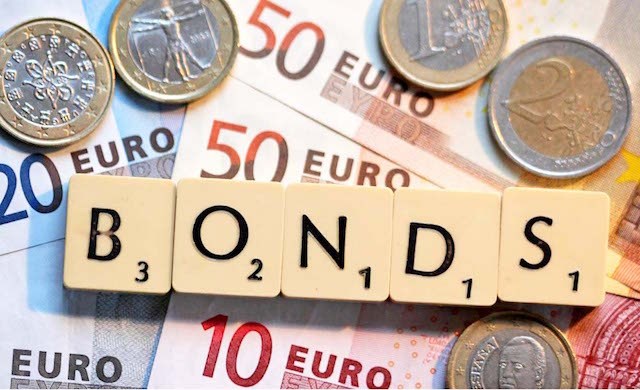Following a rise in purchasing activity on the sovereign curve in the global market, the average yield on Nigeria’s US dollar bonds, also known as Eurobonds, settled lower. African governments are going back to the global debt capital market to borrow money at higher interest rates.
Following the apex bank’s directive to close their net open positions, it was reported that a few local banks had liquidated their stake in Nigeria Eurobonds. Analysts said that the sell instructions were not entirely followed since the top bank’s direction did not completely account for the time to dump sovereign Eurobond securities on the foreign market.
A favorable attitude toward the nation’s borrowing instruments in general has been sparked by the rapidly shifting market dynamics in Nigeria. Government gilt edge yields instruments have climbed to double-digit highs.
In the bond market, secondary market activity for FGN Bonds was mildly bearish, resulting in a 0.03% increase in the average secondary market yield to 17.25%. Also in the sovereign Eurobonds market, positive sentiment was observed across all ends of the yield curve, causing a decline in the average yield by 11 basis points to 9.85%.
Improving Appetite across African Sovereigns – CardinalStone
African countries are returning to the international debt capital market to access funds amidst sluggish economic expectation in 2024. High interest rate driven by global central banks inflation fighting policy rates hike had blocked some of the African soverigns from eurobonds market since covid-19 outbreak.
This appears to be changing as countries have successfully launched eurobond raise in 2024 as pressures reduce at the centre, though US Fed has continue to keep rate tight without hope fed funds will reduce in the first and second quarter of the year.
African credits faced pressures at the start of 2024 due to stronger dollar and fiscal concerns, CardinalStone said in a review. On the former, the US dollar index (DXY) remained above its 5-year mean levels and drove concerns of overvaluation and potential correction.
The investment firm said this valuation concern and expected rate cuts also support the argument for dollar correction in 2024. That said, the delayed commencement of rate cuts resulted in a 2.0% increase in the dollar index in January, cascading to bearish sentiments across African sovereign instruments.
On the fiscal narrative, 2023 birthed a new debt default in Africa following Ethiopia’s failure to make a $33.0 million coupon payment, which drove fears of contagion with over $8.0 billion worth of African Eurobonds expected to mature in 2024.
In addition, Bloomberg recently published a sovereign debt vulnerability scorecard, which indicated that about 14 countries in the African region are at a high risk of debt vulnerability.
CardinalStone said nevertheless, some of these fears may have been allayed by South Africa’s repayment of $1.5 billion in Eurobonds and Kenya’s initiation of a bond buyback program ahead of its $2.0 billion Eurobond maturity (largest maturity across Africa) in June 2024 and plans to issue a new 7-year instrument.
In addition, investors’ appetite appears to be improving, given the oversubscription in the latest African Eurobond issuances, which were issued at single-digit yield levels.
The multi asset investment banking firm said for context, Ivory Coast sold its first Eurobond in 7 years, issuing two tranches of debt totalling $2.6 billion in an offering that was oversubscribed by 3.1x. Similarly, the Republic of Benin debuted in the Eurobond market, issuing $750.0 million, with total subscriptions settling at $5.0 billion.
“To our minds, expectations of a possible global rate cut in 2024 may continue to support investors’ interest, which may, in turn, encourage more African sovereigns to tap the Eurobond market”, Cardinalstone analysts said in the update.












